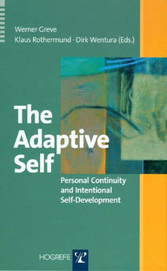Search and Find
Service
Structural and Functional Components of Developmental Regulation (p. 39-40)
The healthy and successful development of young people may be understood within the context of human evolution and of how adaptive regulation of person-context relations constitutes the basic process of ontogenetic change within the developmental system. One may conceptualize the idealized version of this ontogenetic change process as thriving (Lerner, et al., 2002, Lerner, 2004). From the perspective of the integrated levels of organization comprising this developmental system, there are universal, structural and cultural and/or society-specific functional components of a developmental linkage between the person and physical and cultural ecological context that enables thriving to occur. This ecological context is composed of other people (e.g., peer groups, families) and of the institutions of society and culture which are constituted by both physical institutions, such as schools and religious institutions, and conceptual or ideological institutions, such as the values that exist in a society in regard to the desired features of human functioning.
Within the developmental system, a relation that subserves the maintenance and perpetuation of the system is one wherein the individual acts to support the institutions of society and, simultaneously, where these institutions support the healthy and productive functioning and development of the individual (Elder, 1998; Ford & Lerner, 1992). In such a relation, the actions of the individual on the context and the actions of the context on the individual are fused in the production of healthy outcomes for both the individual and the institutions (Elder, 1998).
As such, the key feature of the thriving process is one wherein the regulation of person-context relations eventuates in such multi-level outcomes (Brandtstädter, 1998; Heckhausen, 1999). In fact, a key, structural value of all societies (that is, a universal structural value of all societies) is that individuals’ regulation of their person- context relations makes positive contributions to self, family, community, and society (Elder, 1998). In short, then, in all societies healthy and valued personhood is seen as a period, or "stage," wherein such generative regulation exists (Csikszentmihalyi & Rathunde, 1998; Erikson, 1959).
Of course, in different societies, there is variation in what a person must do manifest such structural values of productive and healthy personhood. That is, how person must function to manifest structurally valued regulation will vary from social/ cultural setting to setting and across historical (and ecological) conditions (Elder, Modell, & Parke, 1993; Erikson, 1959). That is, functional values show social, cultural, and temporal variation.
For example, in some societies regulations that support inter-individually invariant belief in and/or obedience to religious dictums may be of superordinate value. In turn, in the United States regulations that support individual freedom, equity, and democracy are highly valued, and attributes such as the "Five Cs" of positive youth development – competence, confidence, character, social connection, and caring or compassion (Roth, et al., 1998; Lerner, Fisher, & Weinberg, 2000) – are often regarded as healthy outcomes of functionally appropriate (adaptive) developmental regulations. In turn, attributes antithetical to these five attributes (for example, attri butes such as negative self regard, abusive or manipulative social relationships, "zero-sum-game" self interest, and the absence of integrity) are instances of unfavorable individual outcomes that (we presume) derive from inadequate (non-adaptive) developmental regulations.
In all cases, however, every society will show variation within a given historical moment in what behaviors are judged as valuable to (consistent with) supporting the universal structural value of maintaining/perpetuating person-context regulations subserving mutually beneficial individual and institutional relations. As a consequence, the markers or indices of what an individual must manifest as he or she develops from infancy to adult personhood may vary across place and time (Elder, et al., 1993). Accordingly, there may be variation across different societies and points in time within the same society in definitions of person-context relations that comprise positive youth development, and thus in the specific behaviors that move a young person along a life path wherein he or she will possess the functional values of society and attain structurally-valued personhood. Simply, there may be both historical and cultural variation in the specific, functionally valued components of the thriving process.
All prices incl. VAT













